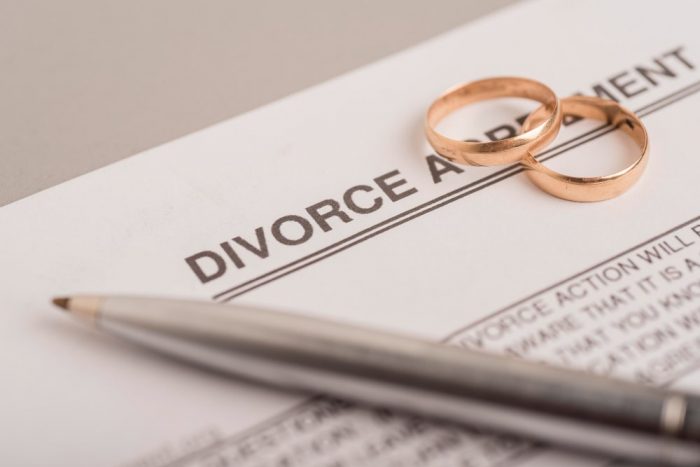International Marriage
As a diaspora or expat, getting married in a foreign country may involve complex legal procedures and regulations that differ from one country to another. Obtaining the necessary documents and complying with local legal requirements may be challenging, and language barriers may further complicate the process. Furthermore, international marriage can lead to potential disputes involving property, spousal support, and immigration status. It is important for diaspora and expats to seek legal advice and ensure that they understand the legal implications and consequences of getting married in a foreign country.
Find best lawyers for International Marriage
Issues related to International Marriage
When two people get married, they are usually considered to be in a “domestic partnership” under the law. This means that marriage is recognised as a legal union between two people who reside in the same country. However, if one or both spouses are not citizens of the country where they reside, their marriage may not be recognised under that country’s laws. There are a few ways to resolve this problem. The first is for one of the spouses to become citizen of the country where they reside. The second is for both spouses to move to a country where their marriage will be recognised under the law. Finally, the third option is for one spouse to travel to their home country while the other remains in their country. There are many legal aspects to consider when entering into an international marriage.
First and foremost, you must ensure that your marriage is legally recognised in both countries. This can sometimes be a complex process, so it is essential to consult an attorney or other legal expert before getting married. Another consideration is whether or not your spouse can obtain a visa to live in your country. Once again, this can be a complicated process, and you will need to consult with an immigration attorney to ensure everything is done correctly. Finally, there are several financial considerations to consider when getting married internationally. For example, you must determine how you will handle your taxes. There are many factors to consider when determining whether or not an international marriage will be recognised. First, the couple must ensure their marriage is legal and valid in their country of origin. If the marriage is not considered legal in their home country, it likely will not be recognised in other countries. Secondly, the couple must meet all applicable immigration requirements. For example, if one or both partners are not citizens or permanent residents, they must obtain a visa to enter the country. Finally, the couple should check with their local jurisdiction (city, county, or state) to see if there are any special recognition requirements for foreign marriages. In some cases, couples may need to provide additional documentation.


If you’re considering an international marriage, you should know about visa issues. First, you must obtain a visa for your spouse to enter the country. Second, you may need to get married in your spouse’s home country before they can come to live with you in your own country. There is no one answer to this question, as the applicable law in international marriage will vary depending on the specific situation and the countries involved. However, some factors that could be considered include the nationality of each spouse, the place of marriage, and whether the spouses live in different countries. Ideally, it is best to speak with an experienced attorney who can provide more specific advice. The process for making an international marriage official will vary depending on the country or countries involved. However, in general, the steps involved will likely include filing a marriage application with the appropriate government agency, obtaining any required documentation or visas, and undergoing a legal ceremony.
Latest Articles
Legamart Editorial
- April 28, 2021
Tell us more about your problem.
Please give a brief description about what it is you need to talk to our lawyers about ?
Frequently Asked Questions
How can international entrepreneurs and businessmen in the UK or China get married to foreign nationals?
International entrepreneurs and businessmen who wish to marry foreign nationals must follow the legal requirements for marriage in the country where they wish to get married.
In the UK, for example, both parties must give notice of their intention to marry at a register office in the district where they live. They must also provide certain documents, such as passports, proof of residence, and any relevant divorce or death certificates. The notice must be given at least 28 days before the intended date of the marriage.
In China, the procedures for getting married vary depending on the city or province. Generally, both parties must apply for a marriage registration at a local civil affairs bureau and provide certain documents, such as identification cards, household registration certificates, and health certificates. The couple may also need to undergo a medical examination and obtain a certificate of no criminal record.
It is important for international entrepreneurs and businessmen to consult with legal experts in the country where they wish to get married to ensure that they meet all of the necessary requirements and understand the legal implications of their marriage. They may also need to consider issues related to visas and immigration if one or both partners are not citizens of the country where they wish to reside.
What are the legal requirements for marriage in the UK or China for international couples?
The legal requirements for marriage in the UK and China vary slightly, but generally include the following:
UK:
- Both parties must be over 16 years of age (if under 18, they will need parental consent).
- Both parties must give notice of their intention to marry at a Register Office in the district where they live.
- The notice must be given at least 28 days before the intended date of the marriage.
- Both parties must provide certain documents, such as passports, proof of residence, and any relevant divorce or death certificates.
- The couple must have two witnesses present at the ceremony.
China:
- Both parties must be over 22 years of age (for men) or over 20 years of age (for women).
- Both parties must provide certain documents, such as identification cards, household registration certificates, and health certificates.
- The couple may need to undergo a medical examination.
- The couple must register for marriage at a local civil affairs bureau.
- The couple must have two witnesses present at the ceremony.
It is important to note that these requirements can vary depending on the specific circumstances and location of the couple. It is advisable for international couples to consult with legal experts familiar with the laws and regulations governing marriage in their respective countries.
What are the legal implications of an international marriage in the UK or China?
The legal implications of an international marriage in the UK or China can be complex and depend on a variety of factors, including the nationality and immigration status of each partner, any prenuptial agreements, and the jurisdiction in which the marriage is registered. Here are some general considerations:
UK:
- Immigration: If one partner is not a British citizen, they may need to apply for a visa or another type of permission to enter or remain in the UK.
- Property: Any property acquired during the marriage may be considered joint property, regardless of who paid for it.
- Inheritance: Spouses have certain rights of inheritance under UK law.
- Divorce: If the couple decides to divorce, the division of assets will depend on the specific circumstances of the marriage.
China:
- Citizenship and residency: Depending on the nationality and residency status of each partner, the marriage may impact their ability to obtain citizenship or permanent residency in China.
- Property: Chinese law generally considers property acquired during marriage to be joint property, regardless of who paid for it.
- Divorce: Divorce laws in China can vary depending on the couple’s location and other factors. In general, the division of assets will depend on the specific circumstances of the marriage.
It is important for couples to consult with legal experts in both countries to fully understand the legal implications of their marriage and to ensure that their interests are protected.











